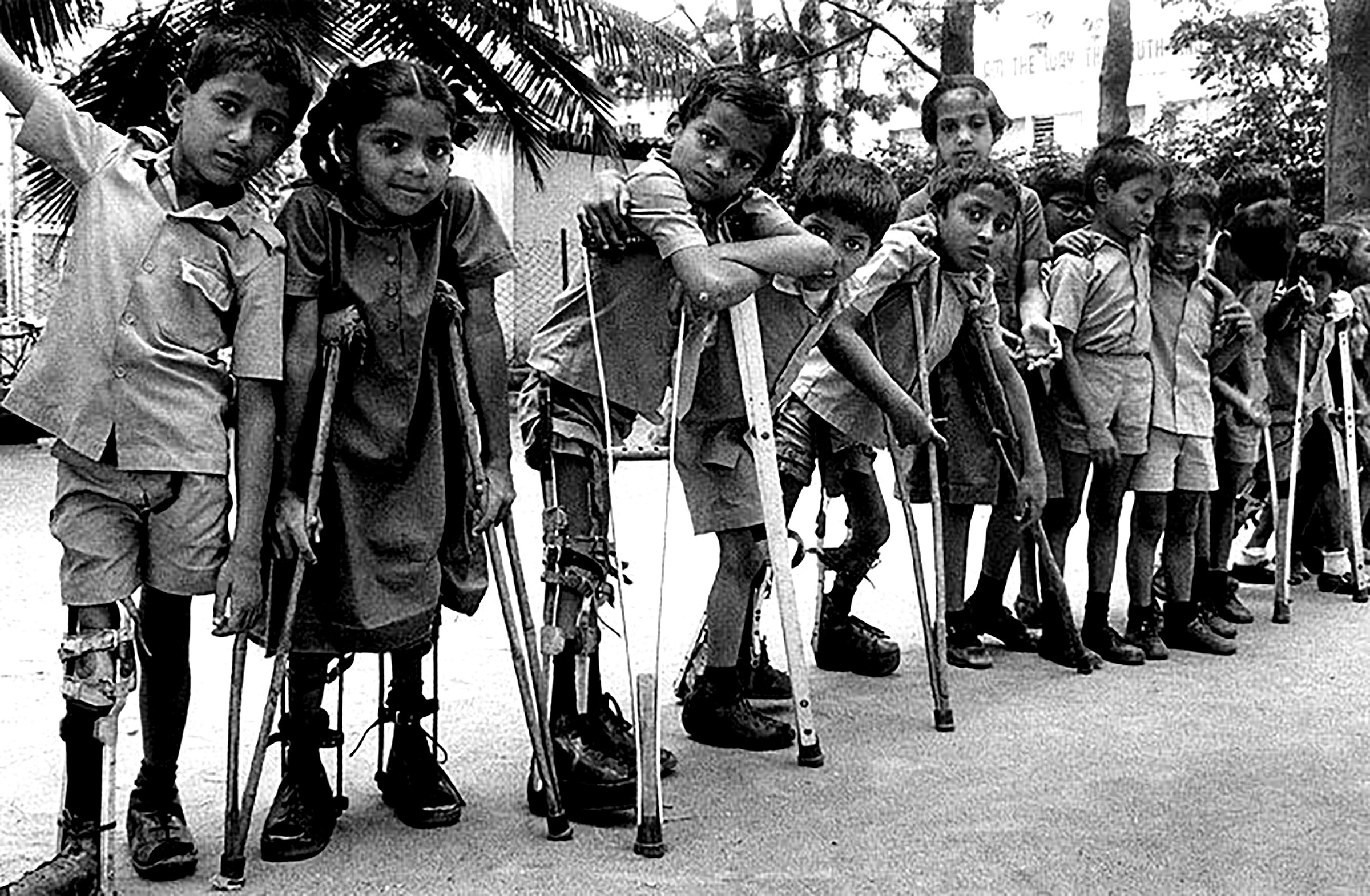


As India marks World Polio Day, it reflects on the successes and challenges it faced in becoming polio-free. After being declared polio-free in 2014, recent detection of Type 2 polio vaccine virus serves as a reminder of the importance of continued vigilance and surveillance. With Pakistan being the only South Asian country still fighting polio, India's journey towards elimination serves as an inspiration for the rest of the region. From making polio vaccination mandatory for travelers to implementing robust surveillance systems, here are five amazing facts about India's journey to becoming polio-free.
India's Remarkable Journey to Eradicate Polio
Background
Polio, a highly infectious disease that can cause paralysis, was once a major threat to children globally. In 1988, the World Health Organization (WHO) launched the Global Polio Eradication Initiative (GPEI), aiming to eradicate polio worldwide.
India, with its vast population and challenging terrain, was one of the most formidable battlegrounds in the fight against polio. The country faced numerous obstacles, including low vaccination coverage, poor sanitation, and the circulation of multiple polio strains.
Successes: Eradicating Polio from India
Despite the challenges, India made remarkable strides in its polio eradication efforts. A comprehensive immunization campaign was launched, targeting every child under the age of five. Key strategies included:
In 2014, India was declared polio-free by the WHO. This milestone was a testament to the tireless efforts of healthcare workers, the government, and the support of the Indian people.
Challenges: Continued Vigilance
India's polio-free status remains under constant threat due to factors such as:
Recent detection of Type 2 polio vaccine virus in India serves as a reminder of the need for continued vigilance and surveillance.
Inspiration for the Region
India's success in eradicating polio provides inspiration to other countries facing similar challenges. The lessons learned from India's journey can inform polio eradication efforts globally.
Top 5 FAQs Related to Polio in India
Q1: Is India still polio-free? A: Yes, India has been polio-free since 2014, although there have been recent detections of vaccine-derived polioviruses.
Q2: What is a polio vaccine-derived virus? A: A vaccine-derived poliovirus is a rare type of poliovirus that can circulate in communities that have low vaccination coverage. It can be genetically related to the live polio vaccine used in immunization campaigns.
Q3: What is the significance of the recent detection of Type 2 polio vaccine virus in India? A: It highlights the importance of continued surveillance and vaccination efforts to prevent polio outbreaks and maintain polio-free status.
Q4: What are some of the challenges that India faces in maintaining polio-free status? A: Challenges include importation of poliovirus from neighboring countries, circulation of vaccine-derived polioviruses, and inadequate surveillance in remote areas.
Q5: How can the public support India's efforts to remain polio-free? A: The public can support polio eradication efforts by ensuring their children are vaccinated, reporting any suspected polio cases, and promoting awareness of the importance of polio prevention.

On October 24, the global community commemorates World Polio Day to honor the legacy of Dr. Jonas Salk and the efforts of countless individuals and organizations in the fight against polio. This highly contagious and potentially deadly disease, once a widespread epidemic, is now largely preventable thanks to the development of a life-saving vaccine. India's successful eradication of polio serves as a testament to the importance of strong vaccination programs and collaborations in public health initiatives.

As winter arrives in India, so does the hazardous air pollution. Delhi NCR's AQI has already crossed the 400 mark, making it crucial to invest in air purifiers, especially after Diwali. Dyson, Qubo, HomePure, and Philips have launched high-quality air purifiers with advanced features to tackle different types of pollutants and create cleaner indoor air. With prices ranging from Rs 5,000 to Rs 1 lakh, these purifiers are a practical and timely purchase for a healthier living.

In a recent family vlog, Indian celebrity couple Shoaib Ibrahim and Dipika Kakar shared their "natural" hair care routine for their son, using a homemade mask made with rice flour, flax seeds, and coconut oil. However, experts warn that what works for adults may not be suitable for babies, whose sensitive skin and scalp could react to the ingredients. While the ingredients may improve hair texture, they do not necessarily promote hair growth. Instead, a healthy diet and good scalp care are more important in maintaining healthy hair.

A recent consumer study has found multiple brands of soft contact lenses in the U.S. to contain "forever chemicals" that can be harmful to both the body and the environment. The study, conducted by the nonprofit organization Environmental Health Sciences, tested 18 varieties of popular contact lenses and found all of them to contain markers for PFAS. Brands such as Acuvue, Alcon, and CooperVision were among the list of affected products. This news serves as a cautionary lesson on the potential risks of overusing contact lenses.

On the birth anniversary of Dr. APJ Abdul Kalam, the ‘Missile Man’ of India, tributes pour in on social media celebrating his life, vision and impact. A visionary scientist, inspiring leader and true patriot, Dr. Kalam's humility, compassion and constant interaction with students continue to inspire generations. His tireless efforts in defense, science and youth empowerment have strengthened India's path towards self-reliance and his legacy continues to motivate young minds to dream big and work hard for the nation.

Recent studies have found that extreme heat, particularly when combined with high humidity, can have a significant impact on mental health. A study in India showed that when wet bulb temperature exceeded 27°C, the probability of reporting severe depression increased by 0.5%, even when the temperature was slightly lower. This finding is consistent with global reviews that have linked high temperatures to mood disorders, increased hospital admissions for psychiatric conditions, and even elevated suicide risk. The Lancet has also published evidence that rising temperatures worldwide are a growing threat to emotional and cognitive health.

In a meeting with university officials in Udaipur, Rajasthan Governor Hari Bhau Bagde stressed the importance of incorporating India's ancient knowledge traditions into academic research. He highlighted the deep repository of knowledge in India since ancient times and urged scholars and scientists to draw upon this tradition in their work. Bagde also suggested making ancient texts available in university libraries for study and research purposes, in order to shape the intellectual abilities and love for the nation among the younger generation.

John Clarke, Michel H. Devoret, and John M. Martinis have been awarded the 2025 Nobel Prize in Physics for their pioneering research into quantum mechanical tunnelling. Their discovery has opened new possibilities for quantum technologies, and will be formally presented on December 10, the anniversary of Alfred Nobel's death. This announcement follows the tradition of recognizing transformative contributions to science, and the award carries a prestigious prize of 11 million Swedish kronor.

The US-Japanese trio of Mary E Brunkow, Fred Ramsdell, and Shimon Sakaguchi have won the 2025 Nobel Prize in physiology or medicine “for their discoveries concerning peripheral immune tolerance". Through their research, they have shown how the immune system is kept in check and why serious autoimmune diseases do not affect everyone. Sakaguchi found a new class of T cells, while Brunkow and Ramsdell discovered the explanation behind a specific mouse strain's vulnerability to autoimmune diseases. Together, they have significantly advanced our understanding of immunology and autoimmune diseases.

Indian astronaut Shubhanshu Shukla, who recently completed a 20-day space mission, shared his insights and experiences at the convocation ceremony of Dr. APJ Abdul Kalam Technical University. He highlighted the importance of patience, focus, and the inevitability of change in achieving success, and urged the graduating class to actively contribute to shaping a fearless and ambitious India.